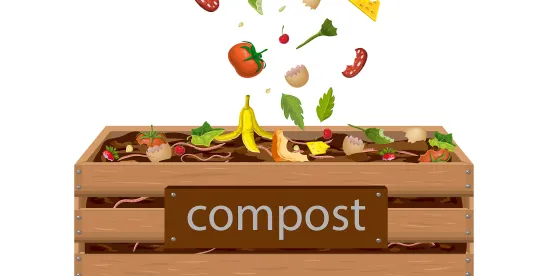Earlier this month, the California Department of Resources Recycling and Recovery (CalRecycle) sent a letter to the Biodegradable Products Institute (BPI) that effectively delays, until June 30, 2027, a key requirement for “compostable” and “home compostable” products set to take effect next year. California’s AB 1201 required that after January 1, 2026, products labeled “compostable” or “home compostable” must not only pass tests specified under the law but must also be “an allowable agricultural organic input under the requirements of the United States Department of Agriculture [(USDA)] National Organic Program [(NOP)].” Although this requirement applies to any material that meets AB 1201’s broad definition of a “product,” the law principally affects plastic and plastic-coated products. To assure that products meeting California’s current compostability standards can continue to be labeled “compostable” or “home compostable” in California, BPI submitted a petition in 2023 to the National Organic Standards Board (NOSB) seeking recognition for compostable plastic and plastic-coated products under the USDA NOP. That petition is still pending. CalRecycle’s letter to BPI grants an extension for “products that contain synthetic substances that otherwise satisfy all requirements for lawfully being labeled ‘compostable,’ including the requirement that products meet an ASTM standard specification pursuant to section 42357(a)(1). This extension shall expire as of June 30, 2027.” Absent this action, many companies would have had to remove current “compostable” labels for their products at a time when other laws – notably SB 54, California's Extended Producer Responsibility (EPR) law for packaging – require that products meet source reduction, recyclability, or compostability requirements by specific deadlines.
CalRecycle’s extension allows plastic and plastic-coated products that currently meet all requirements for being labeled “compostable” or “home compostable” in California, save for formal recognition by the USDA NOP, to continue to be sold in that state without changes to labels until June 30, 2027. After that date, companies must revise labeling for their “compostable” and “home compostable” products sold in California that are not listed as an allowable agricultural organic input under the requirements of the USDA NOP, unless CalRecycle grants a further exemption. On this point, CalRecycle explained that before June 30, 2027:
CalRecycle will evaluate whether to renew exemptions for products that would become compliant with PRC section 42357(g)(1)(B) pursuant to regulations then under consideration. CalRecycle may determine regulations to be under consideration if there is a pending NOSB rulemaking recommendation to the NOP, the NOP has decided to initiate rulemaking but has not yet done so, or the rulemaking process is underway. A renewed extension shall continue while such regulations remain under consideration but shall not extend beyond January 1, 2031.
CalRecycle’s action is good news for companies selling covered compostable products in California. However, the compostability legal landscape remains fractured, with some different – and inconsistent – state laws. Although other states have not adopted California’s added NOP obligations, states like Washington, Colorado, and others have their own restrictions for labeling and marking “compostable” products. CalRecycle’s 18-month extension is a positive step for many companies who have invested in compostable and home compostable products. Nevertheless, businesses offering compostable packaging and products nationally must be familiar with all applicable compostability requirements in developing their labeling and marketing materials.





 />i
/>i
